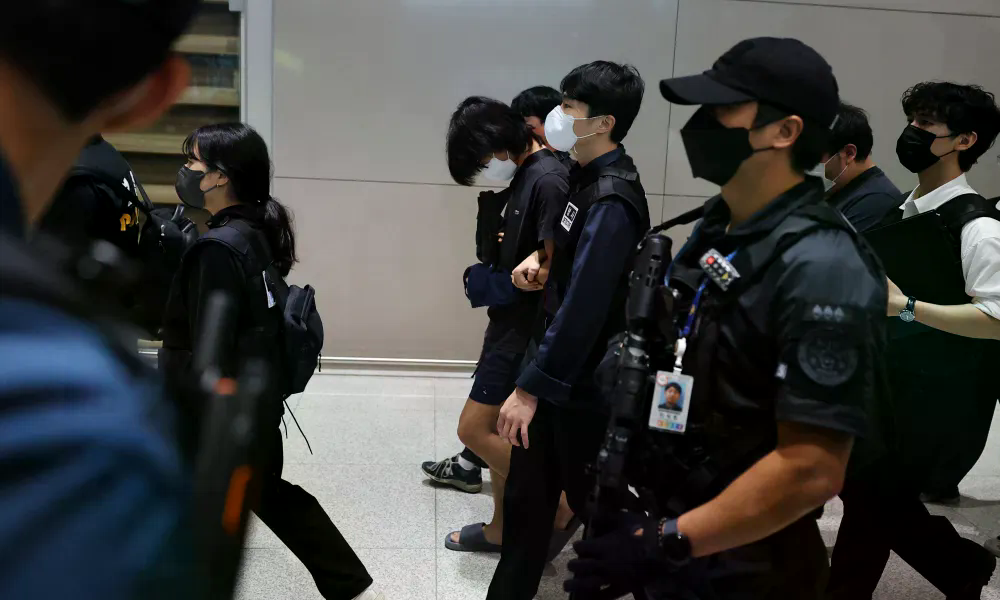
South Korean police are seeking to arrest 58 of the 64 South Korean nationals who were repatriated from Cambodia over the weekend. These individuals are suspected of being linked to “pig butchering” scams, a form of online fraud that involves luring victims through fake romantic relationships before convincing them to invest in fraudulent cryptocurrency platforms.
The National Police Agency of Seoul announced on Monday that it is pursuing warrants for these suspects. One individual has already been arrested, while five others have been released, according to officials. The repatriations involved the return of South Koreans escorted off their flight in handcuffs, reflecting the seriousness of the allegations against them.
This action is part of a broader effort by the South Korean government to address the growing issue of its citizens being involved in scam operations abroad. Authorities estimate that approximately 1,000 South Koreans are working in Cambodian scam centers, often after being lured with false job offers. Once there, they are reportedly held against their will and forced to engage in online fraud targeting victims globally.
“Pig butchering” refers to the practice of gradually building trust with a victim before exploiting them financially. Park Sung-joo, head of South Korea’s National Office of Investigation, stated that those repatriated were connected to crimes such as voice phishing, romance scams, and other fraudulent activities.
National Security Adviser Wi Sung-lac noted that the detained individuals included both voluntary and involuntary participants in the scams. In response to the growing threat, South Korea sent a delegation to Cambodia last week, including high-ranking officials, police, and intelligence agents, to discuss the issue of scam centers and the kidnapping of South Koreans.
This initiative follows public outrage over the death of a South Korean college student in Cambodia in August. The student was found dead in a pickup truck after allegedly being kidnapped and tortured by a scam center crime ring. In reaction, Seoul imposed a travel ban to certain parts of Cambodia due to concerns about the safety of its citizens.
The crackdown on scam centers is part of a global trend. Since the onset of the COVID-19 pandemic, these operations have expanded significantly, with many Chinese-owned casinos and hotels in Cambodia shifting to illicit activities. Last week, the United States and the United Kingdom imposed sanctions on the Prince Group, a multinational crime network operating scam centers across the region. U.S. Attorney General Pam Bondi described the move as one of the most significant actions against human trafficking and cyber-enabled financial fraud.
In addition, Japanese authorities reported the arrest of three individuals in Tokyo for their involvement in Cambodia-based scams, highlighting the international nature of this criminal activity.


